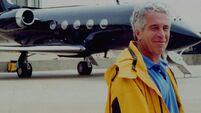Emergency appeal urged to feed N Koreans
The World Food Programme issued an emergency appeal today for aid for North Korea, saying the agency’s supplies have nearly run out and it is cutting off food to almost all the 6.5 million people that it feeds there.
WFP will be able to feed only about 100,000 North Koreans – mostly women and children – over the next two months, said Masood Hyder, the UN agency’s representative in the North.














